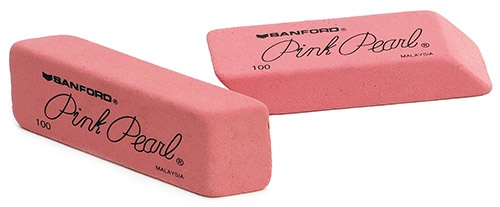
To figure out which year of high school academics is the most important, it helps to think of high school as a marathon.
In order to win a marathon, of course you have to run the whole time—if you stop running, then lots of other people will pass you. But because you're human, when you're running a marathon, you can't really run at the same speed the whole timed. Instead, you learn to pace yourself early on, and then really bust out your best sprint when it counts—at the finish line.
So which part of high school is that all-out sprinting finish line? Read on for our answer.
All Years Are Important
Before I tell you which is the most important year of high school, let's be real: you can't really snooze your way through any of these four important years. High school is designed so that every year is a building block for the next. In other words, the classes you can take junior and senior years depend in large part on what you've been doing the previous years.
This means that 9th and 10th grades are the setup years: this is when you take the prerequisite classes you need to take high level classes later, and also when you join the activities that you will hopefully rise to a leadership position in. On top of that, freshman year can be a really hard adjustment year. You suddenly have high school-level demands, much more academic and social pressure, not to mention the wild ride of adolescent development and the surge of hormones that comes with it. Actually, 9th grade is so hard that research shows that it is the make it or break it year—the year that determines whether kids stay to finish high school or drop out altogether.
 That awkward moment when your hormone surge turns you rabid.
That awkward moment when your hormone surge turns you rabid.
12th grade is also not the best time to start slouching. Even though the GPA colleges will see is made up mostly of grades from the first three full years of high school, first-semester senior year grades are sometimes sent in with your transcript. This means that 12th grade also needs to be stacked with impressive classes that build on what you accomplished junior year. What's more, if you really slack off senior year, your acceptance could even be rescinded
Finally, if you're taking AP classes, good grades on AP exams can get you college credit or at least place you out of intro college classes. Every AP class in every year matters—and you will most likely take the most number of AP classes in 11th and 12th grade.
Junior Year Is the Most Important
If you were paying careful attention, you might have noticed that the last section kind of gave short shrift to 11th grade. That's because junior year is so important that we need to talk about it separately.
Show off your academic chops
The main reason that junior is the most important year for your college applications is because it's the last full year of high school that colleges see. It also represents you at your most mature—since teens grow a lot year by year, junior year is the best way for colleges to extrapolate what you'll be like as an adult.
Because you want to demonstrate your full capabilities, 11th grade should be the hardest course load year on your transcript. It should most closely approximate a college course load, so that colleges can get a sense of how you would handle that level of work. So, my advice is to take the highest level courses that you can reasonably handle (meaning get a B or higher in). Remember, this is the time to really push yourself, especially in classes that are your strengths, that you are passionate about, or that you can see yourself pursuing in college.
Since you will be doing such intense and impressive work in your challenging classes, your 11th grade teachers are probably going to be the teachers that will write your college recommendations. Definitely come to class ready to impress. (Get a more detailed scoop on letters of recommendation in our guide.)
 Art glass: raising the bar on bringing your teacher an apple.
Art glass: raising the bar on bringing your teacher an apple.
Make up for past mistakes
Another key reason that junior year is so crucial is that it can be the time when you redeem a lackluster freshman or sophomore year.
Colleges like to see one of two things from your academic career: either a strong performance that is maintained throughout, or an upward trend of doing better and better each year. If you got really good grades in 9th and 10th grade, then nice job! And, 11th grade needs to be more of the same—great grades in even harder classes.
But if you had a tough time in 9th or 10th grade, then 11th grade is the year when you can show colleges the full range of your abilities by pulling off a banner year of good grades. Imagine an admissions officer seeing at a transcript with mediocre grades in 9th grade, followed by a junior year of challenging classes and good grades. This officer will see a student who rises to the challenge and has the perseverance to keep going even in the face of a setback.
 Time to erase those early bad grades from the admission officer's mind.
Time to erase those early bad grades from the admission officer's mind.
On the other hand, a bad junior year can make a good freshman or sophomore year look like a fluke. Now picture that same admissions officer seeing a transcript with a bunch of 10th grade A's, followed by 11th grade B's and C's. This time, the officer is likely to conclude that the strong sophomore year performance is not really an indicator of the student's ability.
Crush upcoming key tests
At the same time, 11th grade is the year of important testing. Of course, you will take lots of tests every year of high school, but your junior year will most likely be full of statewide and nationwide tests that will matter a lot on your college application.
- AP exams that will end up on your college applications (check out our full list of available AP exams).
- If your state has a required exit exam, you will likely take it at the end of junior year.
- The PSAT—a test that is called "practice" but that you have to take very seriously because it could qualify you for the National Merit Scholarship program and give a sense of how you will likely score on the SAT (learn more about the PSAT here).
- SAT subject tests that will end up on your college applications (here's a breakdown of everything you need to know about SAT subject tests).
- And, of course, the SAT itself, which you will most likely take for the first time in late winter or early spring of your junior year. Learn why a high SAT/ACT score is the best single way to improve your chance of admission to a competitive school.
 You will be weighed. You will be measured. Hopefully you won't be found wanting.
You will be weighed. You will be measured. Hopefully you won't be found wanting.
Be a leader
Because junior year is also the last full year of extracurriculars that colleges will see, this might be the perfect time to prove your ability to lead and manage others. So run for that student council election, audition for that starring role, or work your way up to first singles on the tennis team!- Can you be elected an officer of your club or student organization?
- Can you become captain of your sports team?
- Can you headline a performance, stage an exhibition, or get a lead role?
- Can you assume larger responsibility for a volunteer project, like orienteering others or organizing donations?
 Is it Rumplestiltskin?
Is it Rumplestiltskin?
Plan your future
Finally, junior year is the year of the college search! This is when you will decide on where and how you will spend the next four years of your life. If you're curious how that process works, read our explainer.
What If I Screwed Up My Junior Year?
If you've been reading this and panicking because your junior year didn't go according to plan, don't worry. You still have some good options. You can explain what happened on your college applications, try to make up the grades through some hard work, or even just chalk it up to experience and move on to do better in the future.
Did something happen in your personal life to derail you?
Anything like your parents divorcing or losing a job, a serious illness or injury, or any other tremendous life upheaval is a completely understandable reason for grades to fall. If this happened to you, the key thing is to explain to colleges exactly what you were going through. Use either your personal essay or the "tell us anything else" space on your application to let schools know your circumstances. Additionally, for extra impact, ask your counselor or the teachers writing your recommendations to also narrate these adverse events in their letters
Are you still in the middle of your junior year?
If you are still in the middle of 11th grade and have just noticed that your grades are slipping, there is probably still time in the year to undo the damage. Remember, your mid-year grades aren't going to be seen by colleges, so you still have time to mitigate the situation.
This is the time to ask the teachers whose classes you are struggling with for help, for extra credit assignments, or anything else that can help boost both your grade and their opinion of your work ethic. Also, if you've been taking it easy, this is the time to hit the books. Without overwhelming yourself, and without depriving yourself of sleep (7-8 hours a night is what the doctor ordered) or your sanity, spend some extra time assessing your study habits and improving them. Think about letting your social life take a bit of a backseat for now while you study—trust me, your future is worth a little hermit behavior.
 Is hermit behavior anything like hobbit behavior? Because I think I could really get used to elevensies and second breakfast.
Is hermit behavior anything like hobbit behavior? Because I think I could really get used to elevensies and second breakfast.
Another way to make the case that you haven't actually performed up to your potential is to really do your very best on the SAT or ACT test. A high score will show that you have untapped potential.
We have detailed advice on raising your GPA fast and on getting a full 2400 SAT score.
Are you planning to recommit to academics in the future?
Sometimes what happened in high school should just stay in high school. If you let your work slip, but now have come to you to a sudden realization that you need to refocus on academics, then what you really need is some more time to show what you can really do.
Then this might be the time to rethink your target schools, and then try to transfer midway through your college career. For example, you could first go to community college for one or two years, and then apply to a state or private university as a transfer student. Another great option is to seek out a university system and first enroll at a less selective campus, eventually transferring to one of the more selective ones. Explore your options in our guide to applying to college with a low GPA and our roundup of the best colleges with low GPA requirements.
What's Next?
Thinking about planning your high school curriculum? Then check out our discussion of the classes you should take in high school.
If you'd like to see what a rigorous course load would look like, read our article on planning a challenging curriculum in high school.
To learn more about how your GPA is calculated, read about how your GPA works and the difference between a weighted and unweighted GPA.
Have friends who also need help with test prep? Share this article!

Anna scored in the 99th percentile on her SATs in high school, and went on to major in English at Princeton and to get her doctorate in English Literature at Columbia. She is passionate about improving student access to higher education.



































 Holly R.
Holly R.